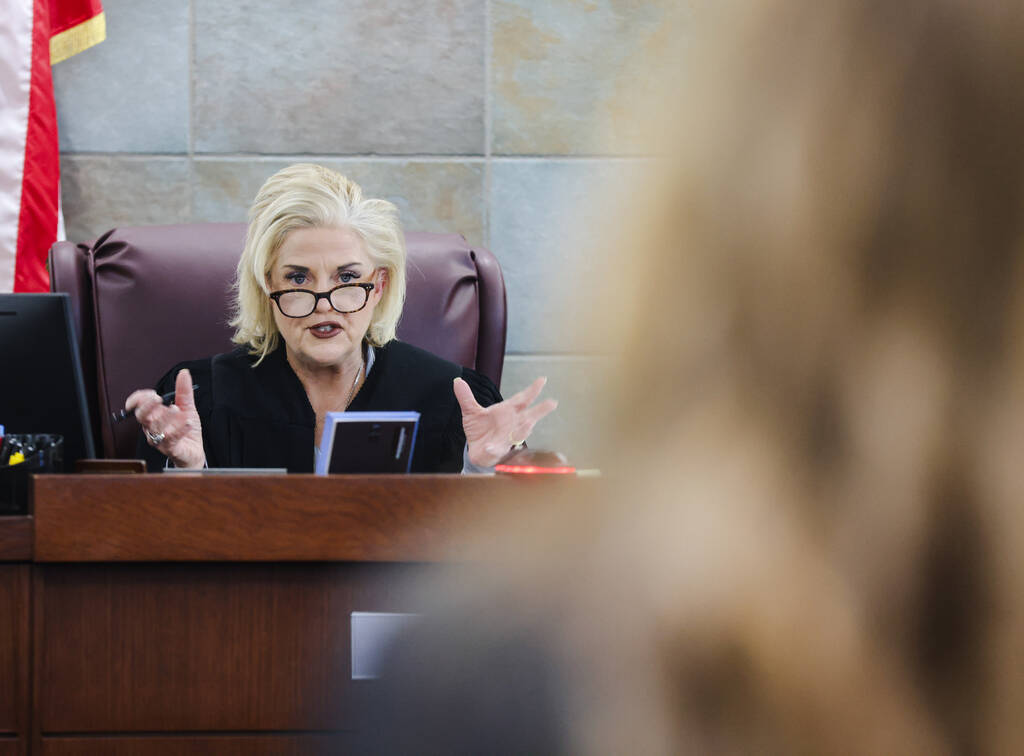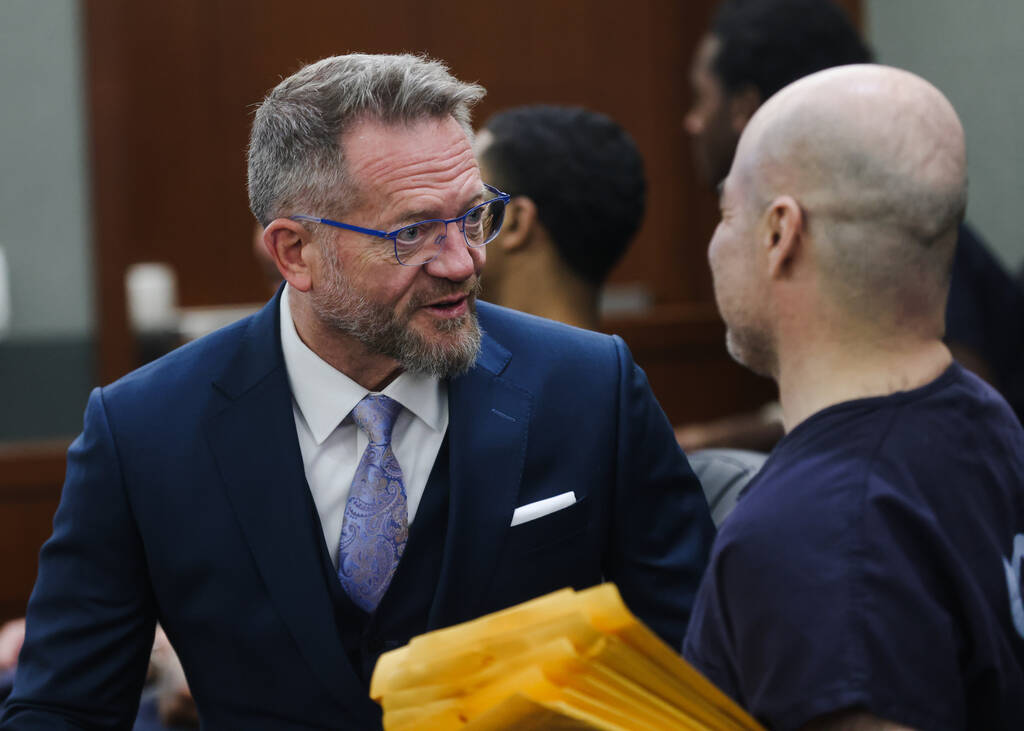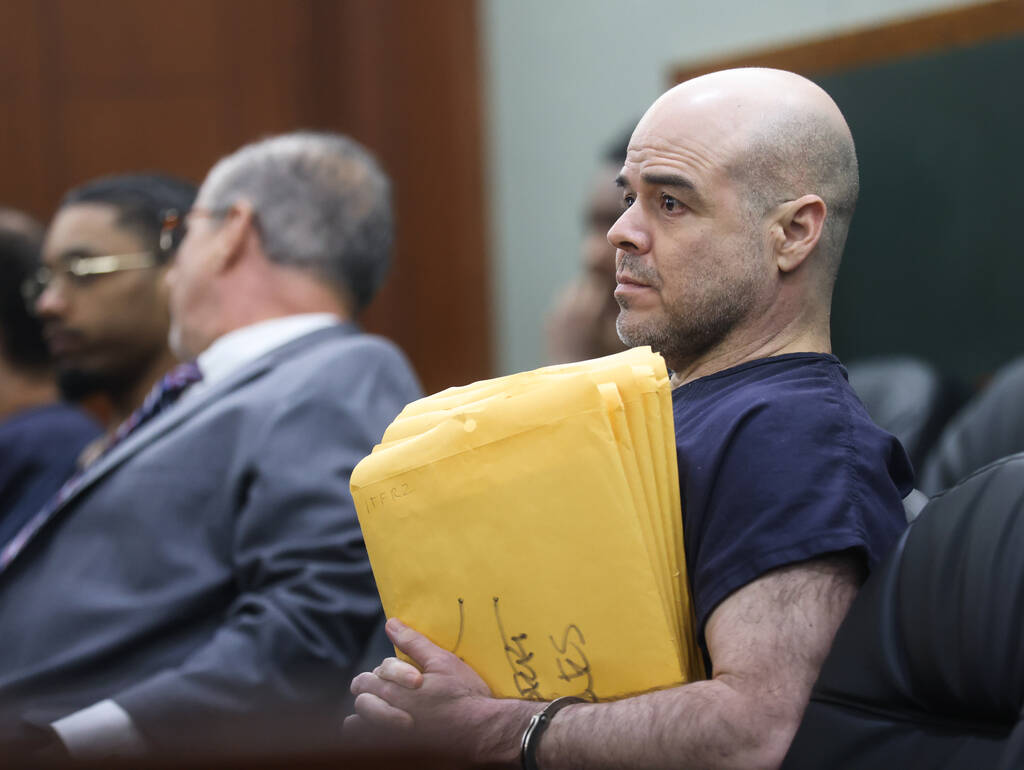Telles’ attorney claims no ‘direct evidence’ of motive in murder case
Court documents filed Wednesday by Robert Telles’ attorney claim that prosecutors do not have clear evidence the former Clark County Public Administrator intended to kill Las Vegas Review-Journal investigative reporter Jeff German.
“He never communicated or said anything that he was going to harm Jeff German,” defense attorney Robert Draskovich said. “There’s an inference, but there’s no direct evidence.”
Draskovich asked a judge to order prosecutors and police to turn over evidence including surveillance conducted on Telles as part of a separate bribery investigation, with records of communication between Telles and his “subordinate.”
“The electronic communications between Defendant and his subordinate are extremely material because they will show that the Defendant did not have a motive to commit the crime in the instant case,” Draskovich wrote in the motion. “While the State alleges that the Defendant retaliated against Mr. German for uncovering something inappropriate between the Defendant and his subordinate, the electronic communications will show that this is simply not true.”
Prosecutors have alleged that Telles fatally stabbed German outside the reporter’s home in September 2022 over articles German had written about Telles’ conduct as an elected official. German had uncovered allegations of bullying and hostility within the office and an alleged “inappropriate relationship” between Telles and employee Roberta Lee-Kennett. He was also working on a possible follow-up story about Telles before he was killed, and had submitted a records request for Telles’ communications.
Copies of search warrants released in November 2022 revealed that Metropolitan Police Department officers interviewed Lee-Kennett about Telles the day he was arrested on Sept. 7, 2022. Lee-Kennett told police that shortly before German was killed, she and Telles were notified that Clark County intended to release “emails and Microsoft Teams messages” between the two of them as part of a records request.
Draskovich wrote in that Telles’ communications will show he was only concerned that a record request would “reveal employee performance reviews.”
During a court hearing Wednesday morning, Draskovich and prosecutors both said they would be ready to go to trial next month. Employees with the Review-Journal have also recently received German’s personal devices.
Las Vegas police seized multiple computers and German’s phone from his home after his death. A lengthy legal fight ensued as the newspaper fought to prevent investigators from searching through the devices, which could contain information on German’s confidential sources.
Attorneys recently reached an agreement where newspaper employees, instead of a third-party team, will review the material to determine if any information is confidential. In October, the Nevada Supreme Court ruled that the state’s shield law, which protects journalists from forcibly revealing sources, applies to German’s devices after his death.
Chief Deputy District Attorney Pamela Weckerly said Wednesday that the Review-Journal has received the devices.
“Because we’ve never had access to the devices, I really don’t know how long it will take them,” she said.
Telles’ jury trial is scheduled to start on March 18.
“He’s looking forward to having his day in court,” Draskovich said after Wednesday’s hearing.
Telles had been acting as his own attorney for nearly a year, after firing several attorneys shortly after his arrest. He has pleaded not guilty to a murder charge, and he has claimed he is the victim of police misconduct and was framed for German’s killing by a local real estate firm, which has denied the accusation.
Prosecutors have said there is “overwhelming evidence” against Telles, including his DNA that was found underneath German’s fingernails.
In Wednesday’s motion, Draskovich requested that District Judge Michelle Leavitt order Metro to turn over a case file regarding a bribery investigation. According to the motion, a Metro detective received a tip that Telles was “engaged in a scheme where he received bribes in exchange for assignment of home sales conducted on behalf of the Clark County Public Administrator’s office.”
The detective obtained a search warrant in August 2022 to conduct surveillance on Telles as part of the investigation, which continued up until Telles’ arrest. Draskovich argued that the surveillance would be “extremely relevant to establish the Defendant’s location and whereabouts leading up to and after the murder.”
The motion also requested documentation of what Draskovich alleged was a “surreptitious recording” of the detective in charge of the bribery investigation speaking with Telles as he was in an ambulance immediately after his arrest. Draskovich also requested documentation from when police deleted body-camera footage taken the day Telles was arrested.
Contact Katelyn Newberg at knewberg@reviewjournal.com or 702-383-0240.





















